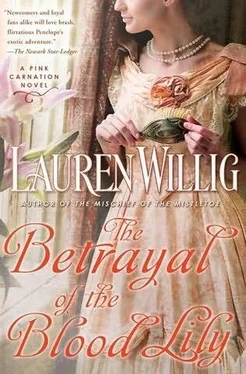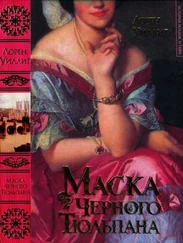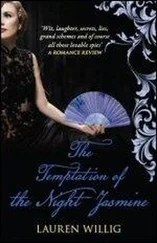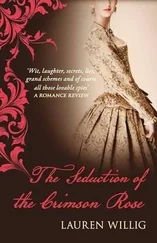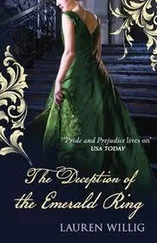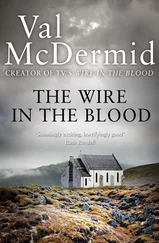An outraged waiter made a noise that wanted to be a growl when it grew up. Hearing it, Nick glanced up and raised a casual hand. “I’ll have a coffee. And can you toss me a menu? Cheers.”
Frigidly, the waiter handed over a menu with only a little less ceremony than Lord Lytton presiding at the official durbar proclaiming Queen Victoria Empress of India.
Letting his chair rock forward with a clunk, Nick flicked open the menu, leaving the waiter with no choice but to retreat, speechless, to the nether regions of the kitchen to procure the desired caffeinated beverage. I presume he spat in it a few times in the privacy of the kitchen.
I felt like spitting myself. Serena wasn’t supposed to be twinkling for Nick; she was supposed to be twinkling for Martin.
Aside from the fact that she and Martin were Just Perfect for Each Other (if only they would wake up and realize it), I was pretty sure our mutual friend Pammy had designs on Nick. That was all I needed, for Serena to get herself mashed flat in Pammy’s wake. And we all knew what that meant: Colin having to swoop in to pick up the pieces again, while I gritted my teeth and did my best to be patient and understanding. Even though she might be technically the prettier of the two, Serena didn’t stand a chance against Pammy. No one did. Pammy was the romantic equivalent of an artillery barrage. There was nothing to do but dive for cover as soon as you saw it — I mean, her — coming. Resistance was futile.
Pammy had tried to impress the wisdom of this approach upon me, but I had proved a poor student in that. I was more of the princess-in-tower school of dating, where you drop your hair out the tower window and desperately hope your chosen prince will take the hint and choose to climb up. If he doesn’t, you hastily coil your hair back up, retreat into the tower, and pretend you never meant it in the first place. Hair, what hair? Never seen that hair in my life.
I leaned more comfortably into the crook of Colin’s arm, marveling at the wonder of having an arm to lean into. Under those circumstances, it was hard to get too worked up about Nick’s gate-crashing.
Letting the menu drop to the table, Nick grinned at me. “Eloise, right?”
We’d only met two times before. They do say third time is the charm. Maybe it takes three times for boys to assume that you’re there to stay and it’s worth their while to remember your name. Not exactly a pleasant thought. I bitterly disliked the thought of any other girl sitting there beneath Colin’s arm.
“That it is,” I said cheerfully. “Nigel?”
“Nick,” he corrected, without rancor. Okay, fine, so it had been petty of me. He was so good-natured, it was hard to be annoyed, even if Serena’s chair was now angled a good forty-five degrees away from Martin, towards Nick. Martin had a resigned expression on his face, as though he was used to this happening. Since they had all gone to University together, he probably was.
“And what do you do, again?” Nick asked, keeping the charm on high.
“I’m a grad student. I’m working on my dissertation.”
“About spies during the Napoleonic Wars,” Colin contributed for me, squeezing my shoulder affectionately.
Awwwww.
Martin looked away. It must be hard for him, I thought, when he had been used to being the one in the couple, now suddenly being on his own, forced to watch other people being all couple-y. I knew how that felt.
“Napoleonic spies? That sounds right up your alley,” said Nick to Colin. Turning back to me, he added, “Did you know that Colin’s family — ”
“Ah, your coffee,” said Colin rather gratuitously. It was hard to avoid noticing Nick’s coffee, as the waiter set it down in front of him with an audible clunk that sent coffee swimming over the rim and into the saucer. “Nick works at the BBC,” he informed me, as the waiter retreated in a glow of petty triumph.
“Can you make them put Monarch of the Glen back on?” I suggested, pouring more cream into my own coffee. “I’m sick of Emmerdale .”
“That’s ITV,” said Nick unapologetically, “not us. So I’m afraid you’re stuck with it.” He threw a wink at Serena, who actually produced a small giggle.
Hmmm.
“We should have a show about your spies,” suggested Nick, raising his coffee cup. “What have they been up to?”
“Oh, all sorts of skullduggery,” I replied, in the same bantering tone. “Kidnapping King George, blowing up theatres, plotting mayhem in India . . . You’re right. It would make a brilliant series. Much more fun than a dissertation.”
“India?” asked Colin curiously, leaning sideways to look at me.
“Oh.” What with one thing and another, I hadn’t quite gotten around to mentioning that to him yet. There had been other things to do last night. Flushing, I admitted, “It’s sort of a tangent. You see,” I explained to the others, “my dissertation mostly focuses on the behavior of spy networks in England and France during the Napoleonic Wars. But, recently, I came across a reference to a French spy network deployed in India during the period. It might make an interesting chapter. History departments are big on the non-Western these days.”
At least, that’s what I had been telling myself. You can always find an excuse for doing what you feel like doing if you try hard enough. And it was true that having a non-Western angle played well in the academic job market. Mostly, though, my curiosity had been piqued.
“What were the Frogs doing in India?” asked Nick idly, rocking his chair back and forth.
“They’d always been there,” I said, with a confidence that came of having spent the last week reading up on the topic. “Well, since the 1660s, at any rate. They had trading posts there, just as the British did. When Bonaparte rose to power, in the 1790s, they still had strongholds in Mauritius and Pondicherry and a lot of the local rulers had French officers in charge of their armed forces. It’s kind of neat, actually,” I added, twisting my head to look back at Colin. “In Hyderabad, the Nizam — that’s the ruler — employed both an English force and a French force, with their own separate camps on different sides of the river. I guess he thought the competition would keep them on their toes.”
“Did it?”
I shrugged. “It kept a lot of spies in business. The French had people in the English camp and the English had people in the French camp and the Nizam had people in both camps.”
“It sounds like fashion designers,” suggested Serena tentatively.
“Or celebrity chefs,” contributed Nick, grinning at her, “guarding their top-secret recipes.”
“The English Resident — that’s a sort of ambassador — persuaded the Nizam to get rid of the French camp eventually, but it was all very touch and go. In fact, Lord Wellesley made it a condition of a bunch of peace treaties with local rulers in 1803 that anyone who had hired French officers had to ship them back to France.”
“Wellesley as in Wellington?” asked Colin.
“Right family, wrong brother. This Wellesley was the older brother. He was the Governor General of India right around the turn of the nineteenth century. Little Wellesley — the one who became Wellington — got his start soldiering under him in India.”
I considered trying to explain about the Mahratta Wars, but thought better of it. People’s eyes were beginning to glaze over the same way mine had when Martin was talking about accounting. I would bore Colin with it later.
“I’m sorry,” I said, grimacing apologetically around the table. “I’ve been doing background reading on this all week, so I’m a little obsessed right now. I’ve sort of hit a dead end, though.”
Having exhausted the Institute of Historical Research’s collection of monographs on late-eighteenth-century India, I wasn’t quite sure where to go for the primary sources. It was my time period, but quite definitely not my field.
Читать дальше
